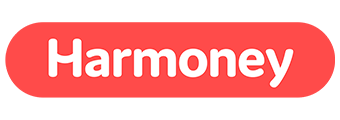Peer to peer lending these days is more sophisticated than just lending your mate $50. There's a range of digital platforms that link people looking to borrow with investors willing to lend.
What is peer to peer lending?
A peer to peer lending platform is different from a conventional lender because the money doesn't come from the institution itself. Instead, the platform simply links investors (which may be retail or wholesale) with borrowers (either consumers or businesses). The platform usually makes money from fees charged to both parties.
Should you invest in peer to peer lending?
If you're looking for a return on your money, peer to peer lending might seem attractive. Rates on personal loans tend to be significantly higher than on deposit products like savings accounts, while it may seem like less of a gamble than investing in growth assets like shares or property. However, there is always the risk of the borrower defaulting, and since the loan is unsecured, you the investor may not be able to recoup all your money.
Peer to Peer Lending in Australia
The first P2P Lender in Australia (SocietyOne) popped up in 2012 after the concept became popular in the United Kingdom and United States. It's regulated by ASIC, which means the platforms (not necessarily investors) need to hold an Australian Financial Services Licence (AFSL), as well as an Australian Credit Licence (ACL). These platforms need to comply with their responsible lending obligations, which means making reasonable enquiries into a borrower's financial situation before writing them a loan.
What P2P lenders operate in Australia?
Right now, there are a few P2P lenders in Australia that cater for retail borrowers. All of these platforms have tiered interest rates based on creditworthiness, and an online enquiry service that can give you a rate in a matter of minutes.
OurMoneyMarket
OurMoneyMarket,'OMM' as it's known, claims to be Australia's "go-to" personal loan provider. Borrowers can borrow anywhere from $5,000-$100,000 over terms up to seven years. The application process is 100% online. On the website there is a handy interest rate calculator guide to see how much interest you might be charged. There are no account keeping or prepayment fees, nor are you charged for discharging the loan early.
OMM's online platform also includes a marketplace for investors to buy 'Loan Units' in the investment trust. Retail investors can choose their risk grade (more risky loans mean higher rates).
Plenti
Formerly known as RateSetter, Plenti was founded in the United Kingdom in 2010, reaching Australia in 2014. One of the more well-known P2P providers, Plenti offers personal loans from $5,000 up to $65,000 on terms from six months to five years.
On the investment side, Plenti arguably offers the least opaque process. Investors can get started with as little as $10 and can choose the type of loan they want to fund - short term for example, or a Green loan. Plenti also offers investors the security of its 'Provision Fund'. Borrowers pay an establishment fee that goes into the Provision Fund, which is then held by a separate trustee. If a borrower defaults, the Fund can make them hold. Plenti says it has a 100% track record of protecting investors, but is not an absolute guarantee.
SocietyOne
SocietyOne was Australia's first P2P lender, founded back in 2012. Borrowers can access anywhere from $5,000 to $70,000 over two, three or five years.
Investors buy units in the Personal Loans Unit Trust, with income generated from a pool of loans. You can register their interest on the SocietyOne website, and the brand says 90% of current investors on the platform are individuals or self-managed super funds.
Peer to peer lenders for businesses
There are also some P2P lenders that cater more to business lending:
Bigstone
Bigstone was founded in 2014 and caters towards business lending. Bigstone can loan amounts anywhere from $10,000 to $2 million and is flexible on the assets that can be financed - agricultural equipment and office furniture could both be okay. The only stipulation is that you must have an ABN and have been trading for two or more years.
To invest in Bigstone, you need to be a 'wholesale client'. You'll need net assets of at least $2.5 million, or a gross income of $250,000 or more over the past two financial years. Alternatively if you're investing at least $500,000, you'll also automatically be a wholesale customer.
MarketLend
Jumping onto the scene in 2015, MarketLend is another peer to peer SME (small-medium-enterprise) lender. MarketLend is distinct in that it aims to reduce lender risk by taking a stake in each loan itself. Borrowers can take out a loan anywhere from $100,000 to $10 million, depending on credit history and other factors.
The investment criteria are similar to that of Bigstone, except slightly more accessible - you can also invest if you have experience investing in similar products. Investors can bid for new loans on the bid marketplace and buy or sell existing loans through the Bigstone loan exchange
True Pillars
True Pillars is another P2P lender focused on SME lending, with loans between $30,000 and $250,000. It offers four products - equipment finance, rideshare finance (for Uber or Lyft drivers to finance a new vehicle), secured business loans and trail book business loans.
It offers investors three pooled options, with longer term investment options having higher returns targets.
In the market for a personal loan? The table below features unsecured personal loans with some of the lowest interest rates on the market.
Savings.com.au's two cents
As with any loan - or investment - it's important to compare all your available options. For borrowers, peer to peer platforms may not necessarily offer a better rate than traditional lenders so it's important to shop around to find the best deal. You should also check out the fees before choosing a P2P lender. Establishment fees are common, and some lenders also charge other fees, such as monthly account keeping fees or charges for early repayment and the like.
For investors, its important to consider the risks involved with P2P lending. Loans are often collateralised and diverisified to mitigate the threat of default, but P2P lending is still generally a much more risky place for your money than a savings account or term deposit. And as always, check the fees involved - these platforms aren't charities after all so you'll need to know how much of your returns will be sucked up by service fees.
First published on January 2021
Photo by Melissa Walker Horn on Unsplash






 Harrison Astbury
Harrison Astbury
 Harry O'Sullivan
Harry O'Sullivan